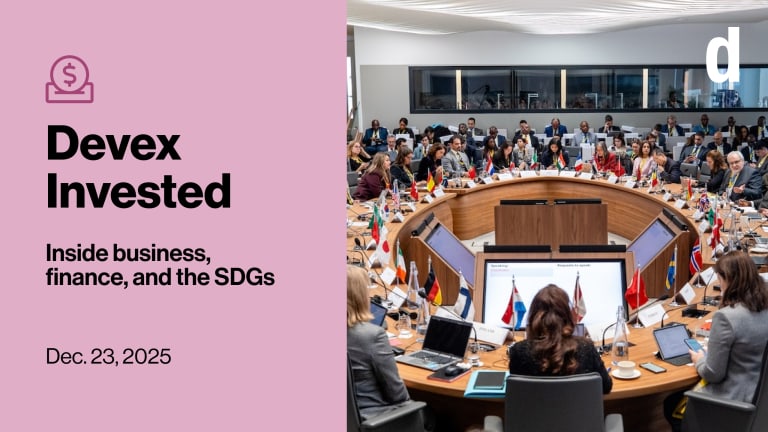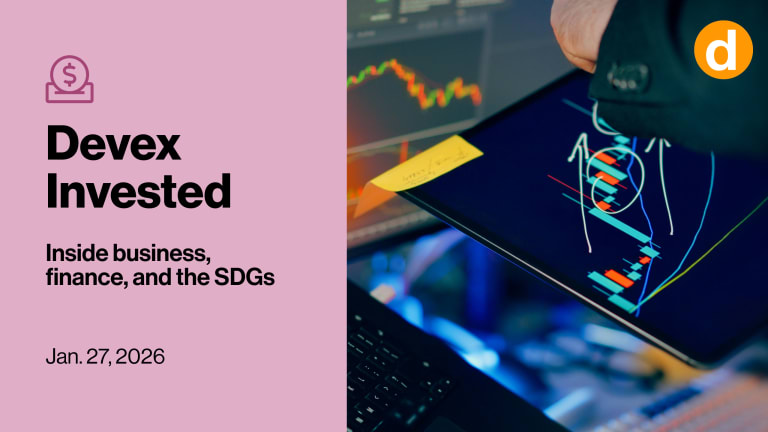
There is often a disconnect between large corporations and small and growing businesses, which can work together to scale new innovations, explore local networks and distribute goods or services. The fundamental problem is that corporates don’t know how to find the SGBs that would be good partners and SGBs often struggle to navigate the corporate bureaucracy and figure out who to work with.
In many cases both types of companies, as well as local communities, could benefit from partnerships between the two — if only they could find the right match.
Seeing this gap in the market, Intellecap, a company that provides business solutions to social enterprises, partnered with the U.S. Agency for International Development to create the Collaboration for Impact Facility — a new tool to help broker those relationships.
The facility, which launches officially on Friday at the Sankalp Africa Forum, comes after an in-depth survey and interviews with businesses validated the need.
“Over the last year in Kenya we saw an increased interest among early stage businesses and corporations ... to innovate and co-create together on distribution partnerships or tech transfer partnerships or new delivery mechanisms,” said Stefanie Bauer, associate vice president at Intellecap business consulting. “We launched the facility to make it easier for both sides to find each other.”
So what might those partnerships look like? A corporation, for example, might be able to use the technology of a small and growing business to improve their work. An SGB, meanwhile, might be able to use a corporate distribution network to scale.
Read related stories:
► Why inclusive business for #globaldev has not (yet) taken full flight
► Tips for private sector: Getting the most out of partnerships
►In Kenya, 3 snapshots of the partnership trickle down
► Can for-profit development companies work with big corporate brands?
The goal for the facility is to help test a variety of partnership types or mechanisms that can help maximize social or environmental impact, Bauer said.
Businesses — either large corporations or SGBs — can apply to the facility for advisory support to help in setting up a partnership. The assistance might mean helping build a business case for the collaboration, helping to source or identify a partnership, building the business model for the partnership, setting up the pilot project, monitoring a pilot project or helping to scale.
That assistance, which is subsidized by USAID funding, still comes at a cost — one of the partners involved has to cover at least 50 percent of the expenses. It’s set up that way to try and prevent corporations from free riding and to help protect the market for those types of advisory services, she said. The maximum value that any organization or partnership will receive is $50,000.
The initial funding from USAID is about $300,000, expected to support about five partnerships over the next two years or so. But Bauer hopes that this will be just the beginning and that other funding will come in over time as the facility proves its worth.
USAID’s support comes through its Partnering to Accelerate Entrepreneurship — or PACE — initiative, which works to build better ecosystems for entrepreneurs.
With the worlds of social entrepreneurship and large corporations interested in inclusive business increasingly converging, there was a growing recognition that both groups were struggling to scale, said Chris Jurgens, director of the Center for Transformational Partnerships in USAID’s Global Development Lab.
“The gap we’re addressing is an information asymmetry,” he said.
The good news is there are already some early examples of these types of partnerships. Jurgens pointed to the collaboration between d.light and Total — which is helping the social enterprise scale by using gas stations in its distribution — or the partnership between Acumen and Unilever, where Acumen is supporting small businesses that could then link into Unilever’s supply chain.
Intellecap will be running the facility, which will accept applications on a rolling basis. They will be looking for the social impact, how innovative the partnership is, whether it can help make the case for new models of collaboration and — importantly — additionality, so as to ensure the partnership would not have happened without the facility’s support.
That additionality factor, together with the need for demonstrable development impact, is critical for USAID, Jurgens said.
The facility is designed to be a testing ground of sorts and, as a result, will look to fund a variety of partnership models, with the objective of helping prove the case that those types of collaborations benefit all involved and create impact. Bauer gave a glimpse at what those might look like: from helping a bank set up a system for engaging fintech startups, to helping a larger local business expand into another East African country.
The overall objective through the facility’s early investments is to have a variety of models that can provide lessons and insights and help build the case for more partnerships of their kind. Collaborations that are innovative and aim to create a broader engagement and not just a one-off project will also likely get priority, Bauer said.
If the facility proves useful and helps to plug an existing gap in the market, it could help build more robust relationships in East Africa, and it may well serve as a model or provide lessons for other geographies as well.
Join Devex to network with peers, discover talent and forge new partnerships in international development — it’s free. Then sign up for the Devex Impact newsletter to receive cutting-edge news and analysis at the intersection of business and development.








